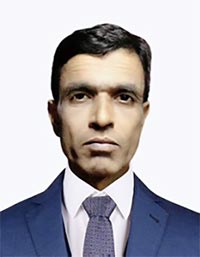

In a nation where history had long been shaped by powerful elites, religious influence, and external prying, the NCP emerged as a force to reckon with. The cries for a new political order had reached a crescendo, echoing through the streets of Bangladesh as the youth, who had risen in 2024 to challenge the corrupt political establishment, looked towards a future that was free from exploitation, injustice, and foreign influence. The launch of this party, led by Nahid Islam, who resigned as adviser of the interim government, was a symbolic moment, the beginning of a new political revolution.
In the heart of the NCP’s message is a resolute commitment to eradicating the influence of foreign powers over Bangladesh’s internal affairs. Nahid Islam, addressing the crowd with unshakable conviction, declared that there would be no room for “pro-India or pro-Pakistan politics” within the borders of Bangladesh. The remark was a stark rejection of the legacy of foreign meddling that had long shaped the country’s political landscape.
Nahid’s words resonated deeply with the crowd, which included the families of martyrs of July-August uprising.
The crowd stood in solemn respect, their hearts heavy with both grief and hope. “We are here today because of the sacrifices made by the martyrs,” he said. “Their blood has not been shed in vain. We are here to honour their legacy and fight for the future.”


He continued by focusing on the future-an unwavering call to rebuild Bangladesh. This powerful declaration set the tone for the NCP’s mission: to create a political order that prioritised the needs of the people, one that would build a truly democratic state where justice, equality, and economic fairness would reign supreme.
Now, Nahid reflected on the history of the Bengali people, tracing their struggles from the colonial era through to the formation of Pakistan in 1947, and finally, the Liberation War of 1971. Despite the sacrifices made during the War of Liberation, he argued, the people of Bangladesh had never fully been freed from the utmost exploitation. “The struggles of the past are not reflected in the present reality. Our political system remains tainted by corruption, dynastic politics, and foreign influence.”
It was clear from Nahid’ impassioned speech that the NCP was not merely advocating for a change of leadership but for a complete overhaul of the political system. The people of Bangladesh, he asserted, were not demanding the replacement of one corrupt government with another; they were demanding a new political settlement that would put an end to the current system of exploitation and oppressions.
The announcement of the formation of the NCP was not just a political statement-it was a declaration of war against the status quo. Nahid’s words were a rallying cry for all those who had been disillusioned by the failures of the past and who were now ready to fight for a better future.
In the days that followed, the NCP began to take shape. Committees were formed in over 400 upazilas, and plans were made to establish a student organisation to further mobilise supports. The party’s vision began to resonate with a broad swath of the population, as delegations from more than ten districts joined the movement in solidarity. The support was overwhelming, a testament to the deep-rooted desire for change that existed within the heart of the people of Bangladesh.
The leadership team included notable student figures, such as Samanta Sharmin and Arif Hossain Adib as senior joint conveners, Dr Tasnim Jara and Nahida Sarwar as senior joint member secretaries, and Hasnat Abdullah as Chief Organiser for the southern region. Sarjis Alam was tasked with overseeing the northern region, while Nasiruddin Patwari was appointed as Chief Coordinator.
This leadership team, drawn from various regions of Bangladesh, represented the diverse nature of the party’s support base. Each leader brought their unique experiences and perspectives to the table, but they were united in their commitment to the cause of creating a better Bangladesh for future generations.
The grief of the martyr families, who had lost their loved ones in the July-August uprising, was a poignant reminder of the cost of political change. Yet, it was this very grief that fuelled the party’s determination to forge ahead with its mission: to create a Bangladesh free from corruption, dynastic politics, and foreign manipulation.
The political landscape of Bangladesh is on the verge of a dramatic transformation. With its young, dynamic leadership and its unwavering commitment to the ideals of justice, equality, and democracy, the new party is positioning itself as the vanguard of a new political order.
The writer is a journalist


